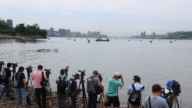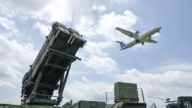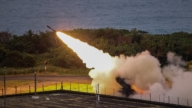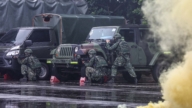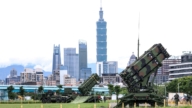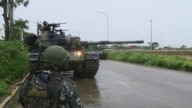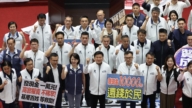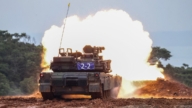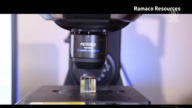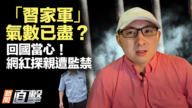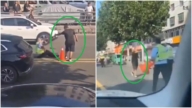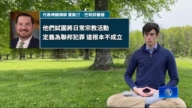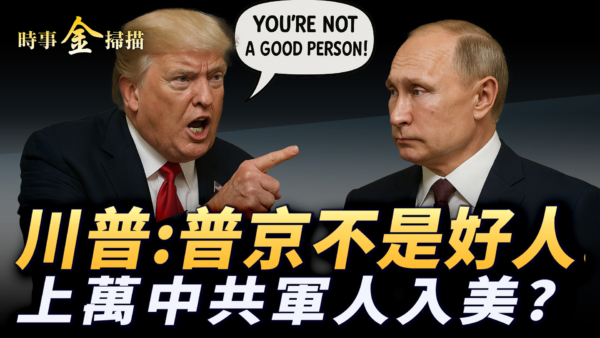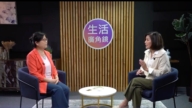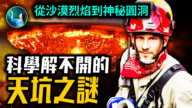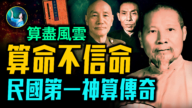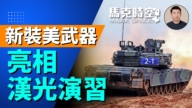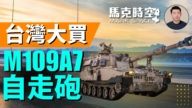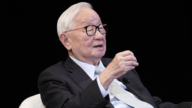【新唐人2014年02月20日讯】日前,台湾“陆委会”主委王郁琦和大陆“国台办”主任张志军在南京会谈,这是自1949年以来,两岸政府最高级别官员的正式会谈,也让两岸分开60多年的政治问题,再次成为舆论关注的热点。有学者指出,台湾与北京过于靠近,实际上是在“与狼共舞”。
备受关注的“王张会”13号在上海落幕。台湾“陆委会”主委王郁琦和大陆“国台办”主任张志军,自11号在南京会谈后,再一次上海重逢,并进行了长达两个多小时的会谈。
美国前哥伦比亚大学访问学者、政治分析家陈破空:“台湾的当权者跟中共走近,这个不仅违背了和中国人民抗共的潮流相反,而且,跟世界围堵中共的国 际形势也相反,因为中共现在跟周边国家是四面树敌,四面楚歌,没有一个国家喜欢中共,它跟周边国家交恶,显示了一个独裁政权的一个霸权嘴脸,这样的情况下,我就说台湾,也就是说现在的台湾当权者,是在与狼共舞。”
尽管两人谈判内容,仅限于事务性问题,但是,避免政治议题的“王张会”,被指暗含政治议题,就是为未来“马习会”铺路。
在台湾的“中华民国”现任总统马英九,还有两年半的任期,据了解,马正在谋求自己的“历史定位”,急于在任期内实现“马习会”,并想借此逆转自己低于一成的民意支持。
不过,美国前“哥伦比亚大学”访问学者,政治分析家陈破空认为,马英九正确的历史定位,应该是放下个人的私心,站在捍卫台湾尊严,坚守民主正义这边,不应与剥夺中国民众基本人权的中共独裁者站在一起。
中共当局在“王张会”前夕,就上演了一出野蛮、无礼的戏:拒绝台湾《苹果日报》及美国《自由亚洲电台》驻台记者签证。
陈破空:“这种跟台湾民主体打交道的时候,却打压民主,排斥新闻自由,而且是选择性排斥,摆明就是一副流氓嘴脸,就是一个强盗逻辑:顺我者昌,逆我者亡。两岸都还没有统一,中共就已经如此明目张胆,在两岸交流与对话过程中,大刀砍杀新闻自由,如照此发展下去,如果两岸统一,台湾落入中共掌控之下,台湾的民主与自由,岂不遭受大劫大难?”
按理,为了捍卫新闻自由,王郁琦应退席抗议,但马政府委曲求全,仍派王郁琦出席“王张会”。陈破空认为,这次会谈,几乎沦为对独裁者的投降之旅。
旅美时事评论员张健:“他(马英九)应该闭门思过,应该怎么样来提高台湾在国际社会上的地位,这个作为他是应该考量的,如何提高台湾同胞在大陆的权益,这是马英九应该做的,而不是派出这样的高规格的一个代表团,和中共狼狈为奸在一起。”
学者指出,“国台办”事前表示“王张会”不触及政治议题,会后发布的新闻稿,却将“反对台独”与“坚持九二共识”变成两岸官方共识,而现场的“陆委会”主委王郁琦没有表示反对,甚至回台后,也不见在野党提出质疑谴责,后续的国际效应,令人担忧。
抗日战争结束后,国民党与共产党之间的矛盾日益激化。1945年10月10号,双方谈判,并签署了“双十协定”。
当时,共产党耍尽欺骗手段,边谈边打,假谈真打,在国民党主席蒋介石与中共领导人毛泽东谈判的41天中,中共抢夺国军城池超过两百多座。
而号称“对台湾让利”的ECFA会议签订后,台湾经济并无起色,反而持续低迷。经济不振,成为马英九政府的硬伤。
时隔六十多年,共产党再度色诱国民党。人们希望,马英九政府能够明辨是非,切莫与虎谋皮,最后吃亏上当,竹篮打水一场空。
台湾社团呼吁在野党,严肃看待“王张会”效应,敦促国会尽快通过《两岸监督条例》,为两岸谈判做好把关。
采访编辑/常春 后制/李勇
Cross Strait Meeting: Taiwan Dances with Wolves
The recent Shanghai meeting between Taiwan’s Mainland
Affairs Council Minister Wang Yu-chi and China’s Director of
Taiwan Affairs Office of State Council, Zhang Zhijun, was the
highest level of official talks between the two governments
since 1949.
This meeting also bought up the more than 60 years of cross
Strait political issues.
Taiwan’s move to get close contact with Beijing is commented
on as “Dances with Wolves".
The 2 hour-meeting between Wang and Zhang ended on the
13th in Shanghai.
This is their second meeting after their first meeting in Nanjing
on the 11th.
Chen Pokong, political analyst: “Taiwan authorities’ close
contact with the Chinese Communist Party (CCP) is not only
violating the anti-Communism of the Chinese people, but also
opposing international containment of the CCP.
The CCP is besieged on all sides. The neighboring countries
have all regarded it as the enemy, for its dictatorship and
hegemonic attitude in the world political arena.
Under such circumstances, I would say Taiwan, i.e., the Taiwan
authorities, is dancing with wolves."
Although the agenda of the meeting was business, political
issues are generally believed to imply and pave the way for
future leadership meetings between the two sides.
Taiwan’s incumbent President Ma Ying-jeou, with his
remaining two and a half years of term, is seeking his
“historical position" and ambitious to reverse the less than
10% public support by pushing forward his meeting with the
CCP leader, Xi Jinping.
Political analyst Chen Pokong comments that Ma Ying-jeou
needs to put aside his personal interest, defend Taiwan’s dignity
and uphold democracy and justice to earn his historical position,
rather than standing side by side with the CCP, the dictator
who deprives Chinese of basic human rights.
Right before the meeting, the CCP staged a brutal and rude drama:
Reject reporter visa to journalists of Taiwan’s Apple Daily and
Radio Free Asia of America.
Chen Pokong: “This is obviously CCP’s gangster logic: Live if
obey, die if disobey.
They deal with the democratic entity, Taiwan, but suppress
democracy and freedom of the press. It is a selective rejection.
The two sides are not unified yet, the CCP is already so blatant
during the dialogue and exchanges cross Strait, by killing press
freedom.
Should this be allowed to continue, once the two sides are unified,
Taiwan falls under the control of the CCP, Taiwan’s democracy
and freedom are bond to disastrous damages."
Logically, in order to defend freedom of the press, Wang Yu-chi
should have withdrawn in protest.
However, the Ma administration compromised and Wang Yu-chi
still attended the meeting.
Chen Pokong comments that the meeting signals Taiwan’s
surrender to the dictator.
Zhang Jian, political commentator: “What Ma Ying-jeou should
do is to ponder over his mistakes and think hard how to improve
Taiwan’s position in the international community and elevate
Taiwan people’s rights in China.
This is what he should do, rather than sending a delegation of
high specification to work hand in glove with the CCP."
Accordingly, China’s Taiwan Affairs Office had indicated that
no political issues are involved in the meeting, but the press
release after the meeting stated the consensus in the meeting,
“oppose Taiwan independence", and “insist on 1992 consensus".
Not only did Wang Yu-chi show no objection against the claims
at the meeting, but also the opposition parties in Taiwan did not
question or condemn the statement.
Commentators are concerned with the subsequent international
effect of these claims.
After WWII, the conflict between the Kuomintang (KMT)
and the CCP was increasingly intensified.
On October 10, 1945, both parties negotiated and signed the
“Double Tenth Agreement."
At that time, the CCP deceived the KMT by false talk and real hit.
During the 41 days of negotiation between KMT Chairman
Chiang Kai-shek and CCP leader Mao Zedong, the CCP conducted
real battle against the KMT and occupied more than 200 KMT
military bases.
After the signing of the Cross-Strait Service Trade Agreement
(ECFA), Taiwan’s economy has not only kept sluggish, rather
than picking up as promised by the ECFA, but also become a
flaw to Ma Ying-jeou’s government.
60 years later, the CCP once again deceived the Kuomintang.
It is hoped that the Ma administration can tell right from
wrong, and refrain from attempting the impossible.
Otherwise, Ma will finally lose the entire nation.
Taiwan’s opposition parties are also called upon by society to
seriously pay attention to the after effect of this official meeting
of both sides, and urge the Congress to pass the “Regulations
on Cross Strait issues" to guard the negotiations across the Strait.
Interview & Edit/ChangChun Post-Production/LiYong



